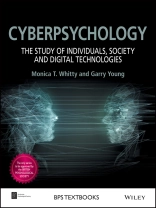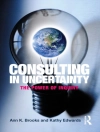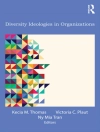CYBERPSYCHOLOGY
An important new textbook for an exciting area of contemporary psychological study and research…
The field of cyberpsychology examines the psychology of interactions between individuals, societies and digital technologies. This engaging and accessible textbook offers a complete introduction to the subject. The authors outline key theories, provide critical assessments, identify areas in need of further research, and discuss ways to use digital technologies as a research tool. They also include a wealth of real life examples, activities and discussion questions for students at undergraduate and graduate levels.
Cyberpsychology provides up-to-date coverage of a wide range of topics relating to online behaviour, and considers the potential impact of these interactions offline:
* online identity
* online dating and relationships
* pornography
* cyberbullying
* children’s use of the Internet
* online games and gambling
* deception
* online crime
表中的内容
List of Tables, Figures and Boxes x
Chapter 1 Introduction 1
Chapter 2 The ‘Self ‘ in Cyberspace 9
Chapter 3 Online Relationships 23
Chapter 4 Online Dating 39
Chapter 5 Online Sexual Activities 51
Chapter 6 Internet Infidelity 62
Chapter 7 Children’s and Teens’ Use of Digital Technologies 73
Chapter 8 Online Education 86
Chapter 9 Leisure and Entertainment 101
Chapter 10 Online Gaming and Gambling 114
Chapter 11 Online Deception 128
Chapter 12 Online Crimes: Scams, Fraud and Illegal Downloads 141
Chapter 13 Online Crimes: Cyberharassment, Hate Crimes and Cyberwarfare 156
Chapter 14 Online Crimes: Child Pornography and Paedophilia 170
Chapter 15 Online Support and Health Care 187
Chapter 16 Concluding Thoughts 200
References 203
Index 240
关于作者
Monica T. Whitty is Professor of Human Factors in Cyber Security in WMG at the University of Warwick, UK. Her research focus is on cybersecurity, cybercrime and online behaviour. She is a co-author or co-editor of several books, and has published widely on cybersecurity, mass-marketing fraud, insider threat, cyberstalking, online identity, cyber-relationships, cyberethics, online surveillance and taboos in video games.
Garry Young is Senior Lecturer in Psychology at Nottingham Trent University, UK. His research and teaching focus on the ethics of enacting real-life taboos within virtual environments, the phenomenology of delusions, and embodied cognition. He has published widely on ethics in video games, notions of self in cyberspace, the Capgras and Cotard delusions, and differences between procedural and declarative knowledge.












